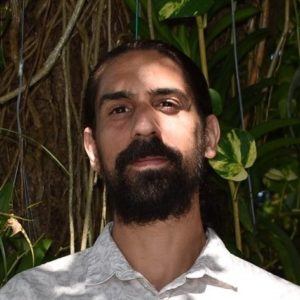
In a recent opinion piece written by Matthew W. Johnson of the Johns Hopkins University School of Medicine, it is suggested that psychedelic researchers should take heed of three pitfalls that commonly arise in the practice of psychedelic medicine.1
According to Johnson, these challenges include 1) working with limited conceptions of ‘consciousness’; 2) introducing personal religious or spiritual beliefs, whether intentionally or inadvertently, into the practice of psychedelic medicine; and 3) maintaining a disposition of ‘psychedelic exceptionalism’ regarding how strictly ethical and clinical boundaries should be adhered to. The following sections of this article delve into greater detail of each of these challenges, including Johnson’s suggestions on how to enhance future research practices with psychedelics.
1. Use of the Term ‘Consciousness’
The term ‘consciousness’ is regularly evoked in psychedelic literature given the effects that classic psychedelic substances have on human perception, cognition, and experience. Since consciousness is an inherently ambiguous concept, Johnson argues that research that fails to define consciousness in precise terms may lead to misleading assumptions. If consciousness is used to refer to a range of phenomena, it can result in the belief that distinct phenomena are in fact identical, resulting in what Johnson refers to as a jingle fallacy.
As a way of avoiding this pitfall, Johnson proposes that researchers draw from the discipline of philosophy, which has developed comprehensive treatises on the subject of consciousness. Drawing on the work of philosopher David Chalmers,2 Johnson suggests that the “hard problem” of consciousness, or the problem of explaining the nature and existence of experience itself, is currently out of the reach of the empirical sciences. However, Johnson also argues that many of the “easy” problems of consciousness, or the contents and processes associated with consciousness, can be fruitfully investigated by psychedelic researchers as long as they adopt more systematic and nuanced approaches to their use of the term consciousness.
2. Improper Introduction of Spiritual or Religious Beliefs
A second pitfall that clinicians and scientists alike must remain wary of is introducing their personal spiritual or religious beliefs within the context of psychedelic medicine. As with the term consciousness, ‘spiritual’ can refer to a variety of things that may range from non-empirical supernatural belief systems to empirically verifiable beliefs such as caring for one’s friends and family. According to Johnson, researchers and practitioners in the practice of psychedelic medicine should focus on empirically based and secular meanings of ‘spiritual,’ since these factors have been shown to positively contribute to psychological health and well-being.
Aside from remaining mindful of the concepts introduced to study participants, Johnson also urges clinicians and scientists to avoid incorporating religious iconography or symbols into the spaces of their clinical practice. For Johnson, the issue lies not in the researcher having their own personal belief systems, but in introducing those beliefs into therapeutic practice. The goal for clinicians and researchers is to ensure that patients have a supportive and open environment in which to make their own meaning during psychedelic therapy sessions.
3. Ethical and Clinical Dilemmas
A final challenge that commonly arises in the practice of psychedelic medicine involves what Johnson refers to as ‘psychedelic exceptionalism’, or the belief that psychedelic substances and experiences need not adhere to the regular protocols and boundaries established by clinical psychology, medicine, ethics, and philosophy of science.
By disregarding or altering the longstanding guidelines and best practices developed in clinical psychology and medicine, researchers expose their participants to greater potential risks such as abuses of power or other inappropriate behaviors, given the suggestibility of psychedelic experiences and the vulnerabilities they may present. Furthermore, a belief in psychedelic exceptionalism is one of the errors that was committed by some of the early psychedelic researchers in the United States during the 1960s.
Discussion
Johnson’s advice to researchers, clinicians, and others working in the field of psychedelic medicine is to maintain as transparent a process as possible while also adhering to proven and longstanding professional boundaries. While Johnson encourages the study of phenomena associated with consciousness, he suggests that researchers should proceed by way of specifying operative definitions of consciousness drawn from philosophy.
For scientists interested in how psychedelic experiences might potentially change one’s personal philosophy, Johnson warns against conflating these personal philosophies and beliefs with validity. Finally, clinicians and practitioners should avoid the use of religious icons in the practice of psychedelic therapy, as should they avoid introducing personal, nonempirical beliefs, whether they be religious or spiritual in nature.
What is your take on these suggestions from Dr. Johnson? Let us know in the comments below!

Is this very conservative perspective the best way to invoke the healing effect.
An indigenous perspective has many things to say about this conundrum.
Indigenous people are also quite conservative; they are traditionalists. Not to say their perspective isn’t valuable, rather the opposite: being “conservative” isn’t disqualifying as long as the views are well-informed. Conservative and liberal perspectives should come together on this one.
I would actually put Matt Johnson in the liberal category anyway and don’t see anything in his opinion piece that seems very conservative.
The best way to understand how to ethically support those in psychedelic sessions is for the researchers to have enough of those experience themselves. Dr Stanislav Grof, one of the pioneers of psychedelic psychotherapy, not only drew from his personal inner work but then supported his findings by providing context from modern physics and ancient spiritual practices. Our documentary film, The Way of the Psychonaut, illustrates his process and provides a context for how to successfully navigate the challenges mentioned in the article. thewayofthepsychonaut.com
Amen!